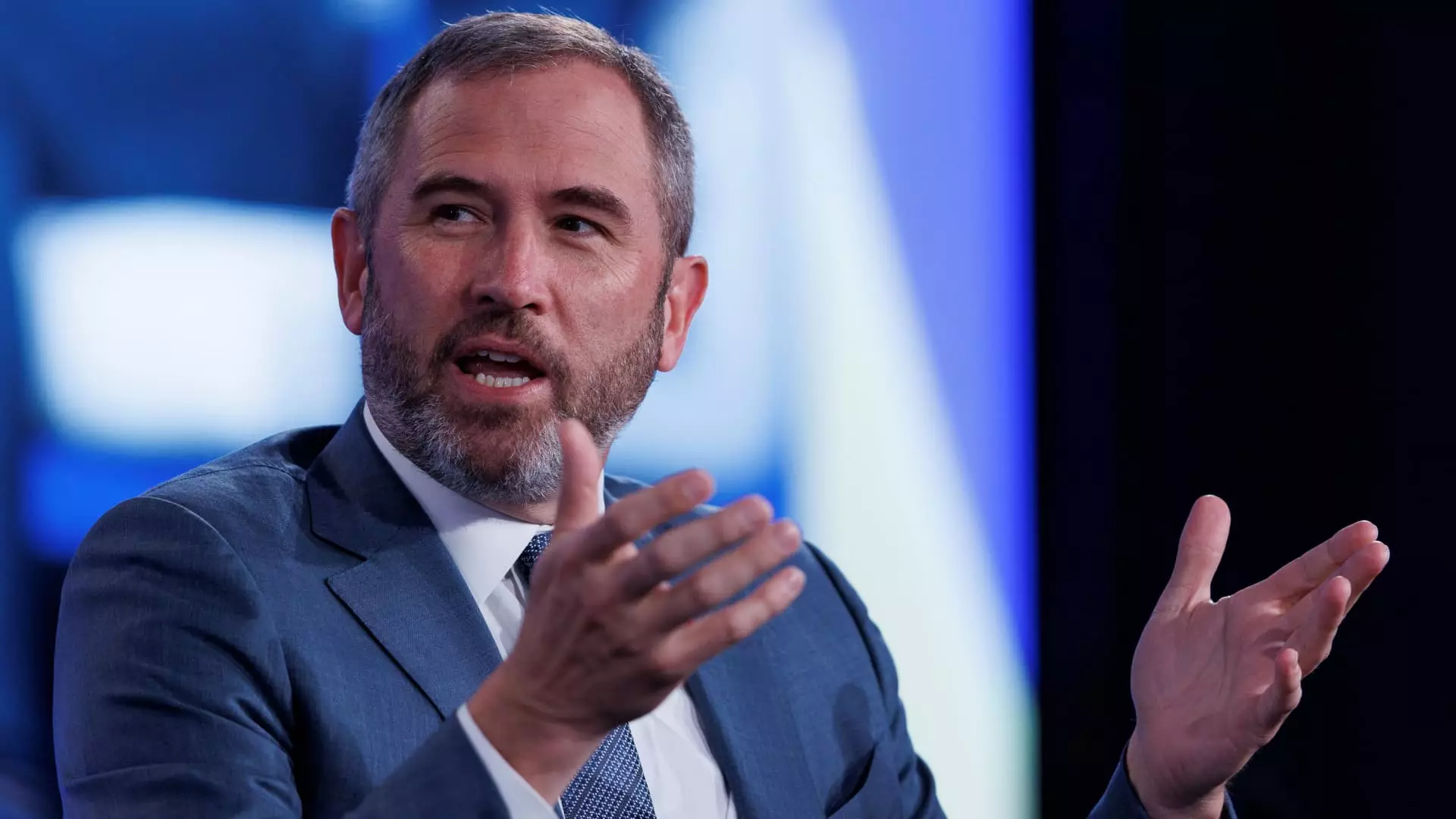The cryptocurrency landscape is one rife with tension, especially when it comes to regulation in the United States. In recent discussions, Ripple Labs’ CEO Brad Garlinghouse articulated a mixture of skepticism and optimism regarding upcoming elections and their potential impact on crypto legislation. His insights reveal both the challenges the industry faces and the sparks of hope that may lie ahead for innovation in the crypto space.
Garlinghouse’s commentary reflects an industry leader grappling with the contentious regulatory environment in the U.S. The 2020 lawsuit from the U.S. Securities and Exchange Commission (SEC) against Ripple underscored the industry’s vulnerability to shifting regulatory winds. The SEC’s classification of XRP resulted in tumultuous consequences for Ripple and the broader crypto economy. However, the subsequent judicial determination that XRP isn’t classified as a security when sold to retail investors has provided a beacon of hope. This legal victory signifies not just a win for Ripple, but a potential turning point for the entire industry, as it advocates for clearer regulatory frameworks going forward.
As Ripple predominantly operates outside of the U.S. market, with around 95% of its business directed towards international customers, it suggests a strategic pivot influenced by the constraints of domestic regulations. This international focus serves as a cautionary tale for fintech entities navigating the complexities of American crypto legislation. Garlinghouse’s advice for innovative fintech startups to consider incorporation outside of the U.S. resonates as a prudent approach amidst uncertainty.
Despite the existing fears surrounding regulatory hostility, Garlinghouse maintains an optimistic outlook on the post-election landscape. He emphasized that regardless of the electoral outcome, the shift towards a more pro-crypto Congress is almost inevitable. “This is the most important election we’ve had,” he stated, acknowledging the pivotal nature of the upcoming political events in shaping future policies that may foster innovation as opposed to stifling it.
Garlinghouse identifies a crucial opportunity for transformation within the political fabric of the United States. With a sentiment that even if the past few years have posed significant obstacles, the momentum towards progressive regulations is gaining traction. In ten years, the industry may look back on these tumultuous times as merely a speed bump, a momentary setback within a broader journey towards innovation and acceptance.
The tensions between differing political factions regarding cryptocurrency regulation have grown increasingly pronounced. Garlinghouse noted how the sentiments within the industry have shifted toward a more partisan narrative. This contrasts sharply with the previously bipartisan support for crypto initiatives in Congress. Notably, while some political figures like former President Trump have embraced a pro-crypto stance, others, like Senator Elizabeth Warren, have advocated for stricter oversight.
Garlinghouse expressed concern over the current administration’s regulatory approach, labeling it as an “attack” on the industry. The implications of this position create an atmosphere of anxiety within crypto communities, fueling fears of further regulatory hostility from entities like the SEC and the Office of the Comptroller of the Currency. As these official agencies tighten their grip, it prompts a chilling effect on traditional financial institutions’ willingness to engage with crypto businesses, echoing sentiments from an earlier era of financial regulation.
Future Directions and Aspirations
Looking ahead, Garlinghouse’s endorsement of candidates advocating for crypto-friendly policies signals a proactive stance on the part of Ripple Labs in shaping political discourse. Specifically, his support for John Deaton, an attorney challenging the regulatory critiques posed by Senator Warren, exemplifies how industry leaders can mobilize political capital to motivate positive change.
Despite the obstacles, Garlinghouse remains hopeful that the crypto industry will witness a significant reset following the elections. This reset could open doors for innovation and move the U.S. towards a regulatory system that is conducive to growth. The balancing act between regulation and innovation will ultimately dictate the pace at which cryptocurrencies can evolve, and the role policymakers play in that equation remains critically pivotal.
Ripple’s narrative, led by Garlinghouse’s insights, embodies the complexities of navigating the American regulatory landscape. While skepticism about the current environment reigns, a cautious optimism about future developments is evident. As the elections loom, the hope for a regulatory landscape that embraces innovation rather than constrains it persists, framing the conversation around the future of cryptocurrency in the U.S.

